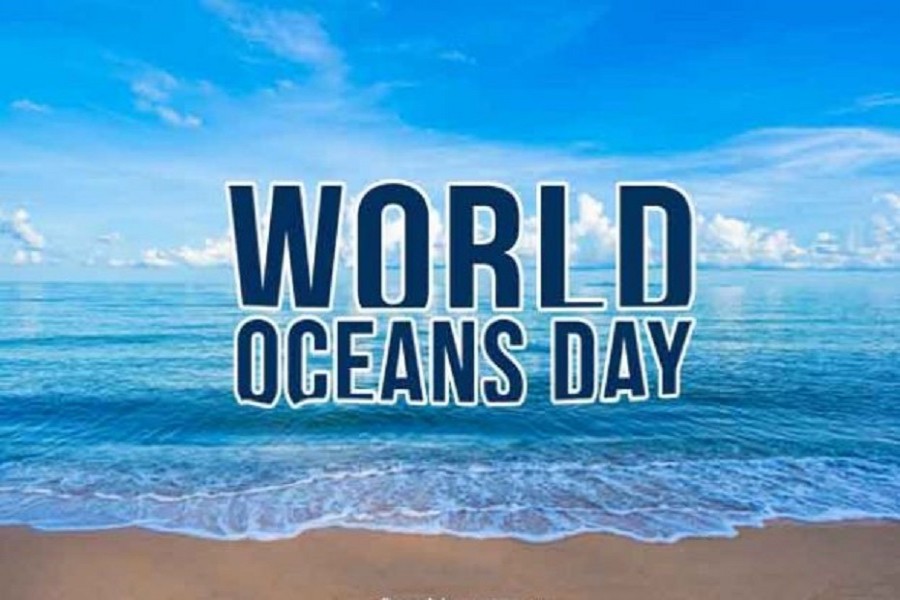Transformative changes sought for conservation of oceans, marine resources

Published :
Updated :

Experts at a webinar on Tuesday laid emphasis on transformative changes, innovative actions for the conservation of oceans and marine resources.
To observe the World Oceans Day 2020, the International Union for Conservation of Nature (IUCN) and the WorldFish, jointly organised the webinar on “Innovation for a Sustainable Ocean”, according to UNB.
Speakers at the discussion highlighted the challenges and opportunities of the actions taken by both state and non-state actors in Bangladesh to conserve oceans and marine resources through education, communication and grassroots action.
Raquibul Amin, country representative of IUCN Bangladesh, moderated the discussion.
During her discussion, Dr. Shireen Akhter, vice chancellor of University of Chittagong, said research must continue and increase interdisciplinary action in context of ocean.
She reiterated that the Bay of Bengal plays a vital role in the economy and the survival of Bangladesh, and since oceans are playing such a big role, the government is trying to engage youth through seminars and scholarships to incentivise them to join research and conservation of oceans.
Dr. Md. Rashed Talukder, chairman of Department of Oceanography, Shahjalal University of Science & Technology said the oceanography curriculum must be diverse and inter-disciplinary which will give students an opportunity to play important part in conservation after their graduation.
Maeve Nightingale for Coastal and Marine Programme of IUCN Asia also pointed out that the curriculum is being followed should be well integrated and deal with the current issues with a multi-disciplinary approach.
Ishtiaq Uddin Ahmad, chief technical advisor of SUFAL project under the Bangladesh Forest Department said, “There is a need to assess the current condition of our marine ecosystems, combining data from different institutions and creating a detailed database.”
He also said that for the proper management and conservation of ocean, it is highly important to set up an inter-agency collaboration.
Muqeed Majumder Babu, chairman of Prokriti o Jibon Foundation emphasized on the need to awareness and proper dissemination of knowledge among all stakeholders about the importance of ocean, biodiversity and marine resources.
He said media has an important part in this process. He also highlighted the need to stringent monitoring by proper authorities.
Alifa Binte Haque, marine researcher and lecturer of Dhaka University said, “Artisanal fishers who practice sustainable fishing techniques should be subsidized, instead of industrial fishing companies, whose methods often lead to over harvesting.”
She emphasised on the active involvement of local communities in marine conservation narratives, action plans, policies and framework”.
Anisul Islam, director of Center for Natural Resource Studies (CNRS), also discussed about two economic models usually followed to provide alternative livelihood for coastal communities and indicated the success of hilsa conservation.
He emphasised on proper governance in this regard in ensuring alternative livelihood.
Kamruzzaman Shadin, who is a communication artist and engaged in raising environmental awareness among local communities through art, brought in fresh insights to the age old conservation paradigms.
He said, “Art plays a great role getting the message across local communities. This has already been proven effective in many places and will work with the costal and marine communities as well”.
The webinar started with remarks by Dr. Abdul Wahab, Team Leader of WorldFish’s ECOFISH II project.
He emphasised on sustainable marine resources management through marine reserve. He also highlighted the conservation efforts in the marine protected areas where WorldFish is working through ECOFISH II project with support from the United States Agency for International Development (USAID).
The recommendations will be shared with the government later on for implementation.
While Canada proposed the concept of a World Ocean Day at the Earth Summit in 1992, the United Nations officially recognised June 8 as World Oceans Day.
As the challenges to the ocean have been increasing over the years, to emphasize on innovative solutions, the theme for this year’s World Oceans Day is “Innovation for a Sustainable Ocean” – a call to strengthen international cooperation to develop the scientific research and innovative technologies that can connect ocean science with the needs of society.
This year's theme is especially relevant in the lead-up to the UN Decade of Ocean Science for Sustainable Development, which will run from 2021 to 2030.


 For all latest news, follow The Financial Express Google News channel.
For all latest news, follow The Financial Express Google News channel.